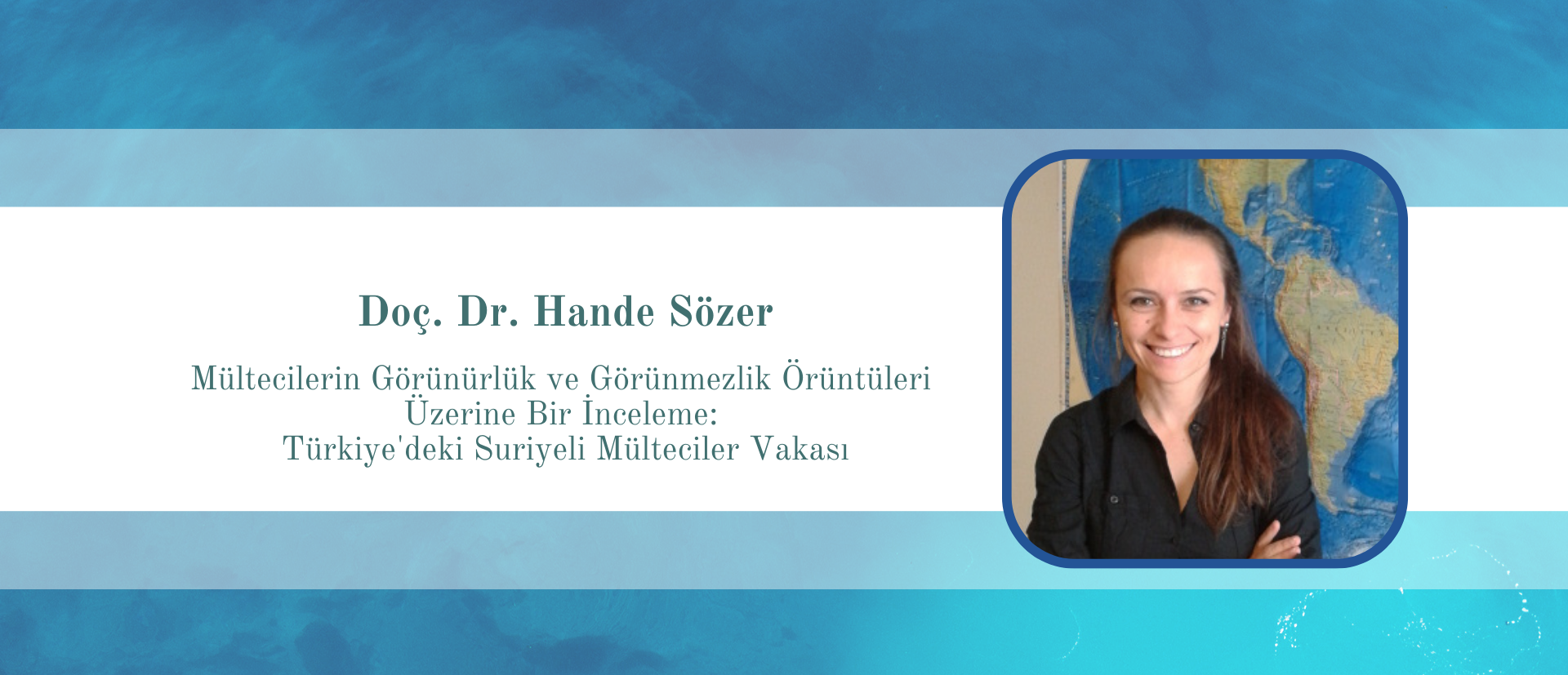Dr. Hande Sözer's Seminar Titled "An Investigation of the Patterns of Refugees' In/visibility: The Case of Syrian Refugees in Turkey"

Tarih: Date -
Dr. Hande Sözer gave a seminar titled "An Investigation of the Patterns of Refugees' In/visibility: The Case of Syrian Refugees in Turkey" via Zoom on August 21, 2024, at 16:00.
Abstract
In Social Science literature, visibility is often presented as a desirable condition, such as recognition, inclusion and empowerment of marginalized communities, including refugees. An alternative approach is rather skeptical; it argues that such groups’ visibility causes their surveillance, social stigmatization, negative stereotypes, exclusion. Both views on visibility, however, presume a uniform and static refugee experience while the seminar questions such totalizing and essentializing account on such groups’ experiences.
The seminar aims to map out complicated yet patterned in/visibilities of Syrian refugees on the structural and societal levels. It claims that Syrian refugees’ in/visibility experiences are conditioned and patterned on the one hand, in relation to refugees’ exposure to the localized manifestations of changing global and national border control, mobility, migration management and humanitarian regimes and on the other hand in relation to their interaction with politically and demographically diversified local communities in the host settings. Syrian refugees’ in/visibility experiences are, indeed, historical and contextual.
Seeing in/visibility as a matter of equality or inequality in both representation and redistribution in the broader society, the seminar tracks the complicated impact of in/visibility on various sub-segments of Syrian refugees in Turkey. Specifically, first it focuses on in/visibilities of ethno-religiously “typical” and “atypical” refugees and then discusses four modalities of Syrian refugees’ invisibilities: the visible (as vulnerable refugees,) the hyper-visible (as “undeserving” refugees and organized refugees,) the invisible (as refugees that don’t count refugees and ignored refugees), and the hyper-invisible (as the dead, the disappeared and the disguised). The seminar is empirically grounded on my fieldwork in 2014-2017 in various Southeastern and Western border cities of Turkey and on desktop research afterwards.